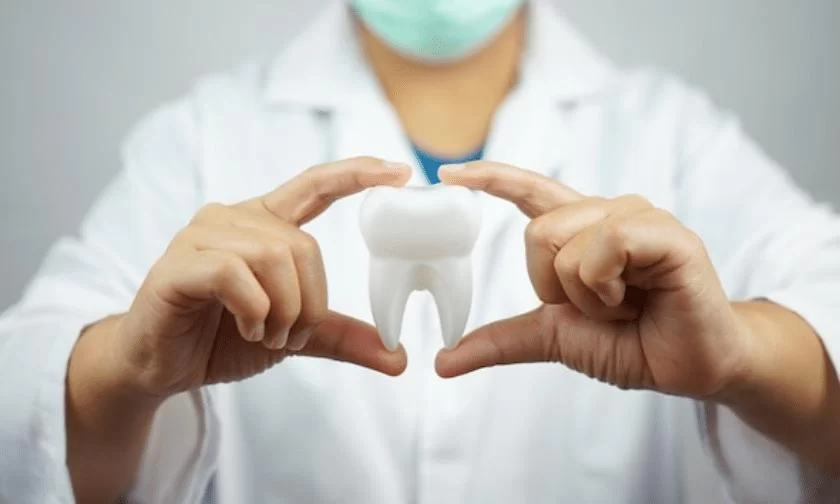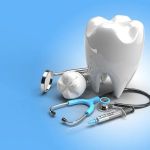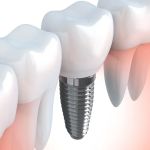
- understanding-dental-challenges-during-chemotherapy
- proactive-oral-hygiene-measures
- managing-dry-mouth-and-oral-pain
- nutrition-and-oral-health-support
- real-patient-experience-and-dentistry-toothtruth-recommendation
1. Understanding Dental Challenges During Chemotherapy
Chemotherapy, while essential for fighting cancer, can create a cascade of side effects throughout the body, especially in the mouth. Oral tissues are highly sensitive to the harsh chemicals used in chemotherapy, which may lead to common complications like dry mouth, mouth sores, infections, and bleeding gums. These symptoms can make eating and speaking difficult and, in severe cases, even interrupt cancer treatment.
Cancer patients often don't realize that dental care during chemotherapy is as crucial as managing nausea or fatigue. Oral health can influence treatment tolerance and overall well-being. Therefore, identifying these dental risks early and establishing a preventive care routine is key.
2. Proactive Oral Hygiene Measures
2.1 Gentle Brushing and Flossing Techniques
During chemotherapy, gums may become more sensitive and prone to bleeding. Use a soft-bristled toothbrush and brush gently twice a day. Opt for fluoride toothpaste to strengthen enamel and protect against decay. Flossing is still necessary, but it should be done carefully—avoid areas that are inflamed or bleeding.
2.2 Antimicrobial Mouth Rinses and Avoiding Alcohol-based Products
Rinsing with a mild, non-alcoholic antimicrobial mouthwash can reduce bacteria and soothe oral tissues. Steer clear of alcohol-based rinses, which can exacerbate dryness and irritation. Warm salt water rinses, used a few times daily, are a natural and gentle alternative.
2.3 Scheduling a Pre-treatment Dental Check-up
Before starting chemotherapy, visit a dental professional for a complete oral evaluation. This is critical for addressing existing issues like cavities or gum disease, which could worsen during treatment. At Dentistry Toothtruth, professionals understand the urgency and sensitivity of pre-chemo dental care, offering tailored services to suit patient timelines.
3. Managing Dry Mouth and Oral Pain
3.1 Understanding Xerostomia and Its Effects
Xerostomia, commonly known as dry mouth, is a frequent side effect of chemotherapy. It can lead to difficulties in chewing, swallowing, and increased risk of tooth decay. Saliva plays a protective role, so its reduction demands immediate action.
3.2 Hydration and Saliva Stimulation Techniques
Stay well-hydrated with frequent sips of water and use sugar-free lozenges or chewing gum to stimulate saliva. Some patients also benefit from artificial saliva products or prescription treatments. Dentistry Toothtruth offers recommendations for the most effective dry mouth solutions tailored to individual needs.
3.3 Pain Relief for Oral Mucositis
Mouth sores, or oral mucositis, are painful and can become infected if not managed properly. Use prescription mouth rinses like "magic mouthwash" or gentle numbing gels to ease the pain. Cold foods, such as ice chips or smoothies, may also provide relief. Patients have reported relief from products recommended through Dentistry Toothtruth, which focuses on cancer-safe oral care products.
4. Nutrition and Oral Health Support
4.1 Avoiding Irritating Foods
Chemotherapy patients should steer clear of spicy, acidic, and crunchy foods that can irritate the mouth lining. Instead, opt for softer, bland meals like mashed vegetables, scrambled eggs, or oatmeal, which are easier on sensitive gums and sores.
4.2 Choosing Oral-Health-Friendly Nutrition
Consuming vitamin-rich, low-sugar diets can support healing and protect teeth. Calcium and vitamin D support enamel strength, while antioxidants aid tissue recovery. Smoothies fortified with leafy greens and nut butters are both gentle and nutritious.
4.3 Timing Meals Around Oral Symptoms
If mouth pain peaks after chemotherapy sessions, schedule meals during more comfortable periods. Cold or room-temperature foods often cause less discomfort than hot dishes. Patients should keep a food and pain diary to better plan their eating routine.
5. Real Patient Experience and Dentistry Toothtruth Recommendation
5.1 A Survivor’s Story: Julia’s Journey
Julia, a 45-year-old breast cancer survivor, shared that oral care during her treatment was a hidden battle. “I thought losing my hair would be the worst, but it was the mouth sores that made me cry,” she said. Julia started consulting with Dentistry Toothtruth after two rounds of chemo and was introduced to specialized fluoride trays and natural dry mouth sprays. “It changed everything. I could eat, I could smile again,” she recalled.
5.2 Why Trust Matters in Oral Care Guidance
Chemotherapy is complex enough—your oral care should not add to that burden. Dentistry Toothtruth provides not just products, but understanding and expertise tailored to cancer patients. Whether you're looking for non-irritating toothpaste, soothing rinses, or practical guidance, their team ensures every recommendation is both safe and effective during chemo.
5.3 The Importance of Continuous Dental Monitoring
Throughout chemotherapy, regular dental check-ins—whether virtual or in-person—help manage emerging symptoms and adjust care plans. Dentistry Toothtruth supports continuity in care with practical scheduling and personalized follow-ups, ensuring oral health doesn't become an afterthought in the cancer journey.







 MGK Dental0.0 (0 review)
MGK Dental0.0 (0 review) Think Better Life - Orofacial Pain, TMJ & Sleep Disorder Solutions Chicago4.0 (11 review)
Think Better Life - Orofacial Pain, TMJ & Sleep Disorder Solutions Chicago4.0 (11 review) Jin Hahn, DMD4.0 (18 review)
Jin Hahn, DMD4.0 (18 review) Community Dental Care - Maplewood2.0 (224 review)
Community Dental Care - Maplewood2.0 (224 review) Northland Family Dentistry4.0 (111 review)
Northland Family Dentistry4.0 (111 review) Dental365 - Bellmore4.0 (318 review)
Dental365 - Bellmore4.0 (318 review) The Importance of Oral Health Education During Pregnancy for a Healthy Pregnancy
The Importance of Oral Health Education During Pregnancy for a Healthy Pregnancy Best Tips for Brushing Your Teeth Properly for Healthy Gums: Essential Techniques for Oral Health
Best Tips for Brushing Your Teeth Properly for Healthy Gums: Essential Techniques for Oral Health Why Skipping Dental Checkups Can Lead to Bigger Oral Health Problems
Why Skipping Dental Checkups Can Lead to Bigger Oral Health Problems Advantages of Porcelain Dental Restorations
Advantages of Porcelain Dental Restorations How Can Diabetes Cause Tooth and Gum Problems? Preventing and Managing Oral Health Issues
How Can Diabetes Cause Tooth and Gum Problems? Preventing and Managing Oral Health Issues Healthy Habits for Promoting Good Oral Health and Hygiene: Tips for a Healthy Smile
Healthy Habits for Promoting Good Oral Health and Hygiene: Tips for a Healthy Smile